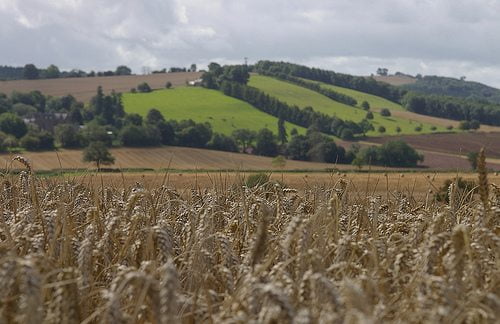

Environment
Long-term approach needed for sustainable agriculture, says Rabobank
In order to meet global food demand sustainably, a long-term holistic approach to farming is necessary, according to a new report from Dutch bank Rabobank. It adds that the world’s rapidly increasing population and changing diets are putting pressure on the food supply system.
Separate research backed by the United Nations and released earlier in December found that the world needs to produce 70% more food in order to meet demands in 2050. The report argued that it was possible to close the food gap whilst still creating a more productive and healthy environment.
The Rabobank report sets out how the industry can move towards a more sustainable future but acknowledges there is no one-size-fits-all solution.
Dirk Jan Kennes, an analyst at the Dutch bank, said, “Without a holistic approach towards feeding the world, the global agriculture industry’s capacity to keep up with demand will be stretched at the expense of the environment.”
Each year, more than 1 billion tonnes of produce is wasted along supply chains across the world, with over half of this coming from agriculture production and post-harvest handling and storage. As a result, the report argues that cutting waste by 10% means the industry can accommodate a yield decrease or a fall in the amount of planted hectares without impacting supply.
The amount of food wasted has recently hit headlines. It was revealed that UK households are still wasting 4.2m tonnes of food every year despite avoidable waste falling 21% since 2007.
Agriculture accounts for 70% of global water demand and a supply deficit of 40% is expected in 2030. Environmental concerns around water scarcity means that it is vital to address the way the industry uses water.
As a result of these concerns, the global micro-irrigation market is expected to grow at an average annual rate of up to 18%, reaching a market size of almost $5 billion (£3 billion) in 2018, the Rabobank report added.
It also addressed environmental concerns around the use of fertilisers, which causes significant losses through leaching, erosion and emissions. Around 53% of applied nutrients remain in the environment after harvest and the practice also contributes to groundwater contamination and global warming.
The desire for increased productivity led to global fertiliser demand increasing from 163m tonnes in 2006 to 176m tonnes in 2012. Creating a holistic approach and a shift in farmers’ perception of best practices away from yield maximisation towards input optimisation could help reduce the practice and its impacts.
Rabobank concluded, “Only intensive co-operation that aligns economical, ecological and social interests of each stakeholder can result in an integrated solution that ensures no one is starving, provides consumers with enough choice and preserves biodiversity and the environment for future generations.”
Further reading:
Tesco to put ‘ugly’ fruit and veg on special offer to cut waste
Agriculture needs to become ‘climate-smart’, says Ban Ki-moon
Feeding the world sustainably means investing in better solutions


 Features11 months ago
Features11 months agoEco-Friendly Cryptocurrencies: Sustainable Investment Choices

 Energy11 months ago
Energy11 months agoThe Growing Role of Solar Panels in Ireland’s Energy Future

 Energy10 months ago
Energy10 months agoGrowth of Solar Power in Dublin: A Sustainable Revolution

 Energy10 months ago
Energy10 months agoRenewable Energy Adoption Can Combat Climate Change


























